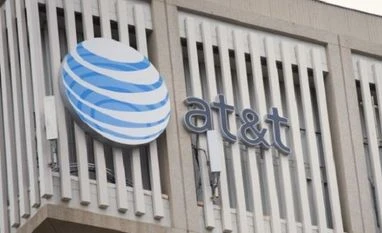AT&T has announced a deal worth $108.7 billion for Time Warner that would create a powerhouse with control over a vast array of media and entertainment assets and the means to deliver them.
The stock-and-cash deal values Time Warner - with HBO, CNN and Warner Bros studios - at more than $85 billion, and calls for AT&T to absorb the media group's debt.
It would give the big US telecom firm "the world's best premium content with the networks to deliver it to every screen, however customers want it," a statement from the companies said.
The tie-up makes AT&T a strong rival to Comcast, which owns NBCUniversal, and aims to counter the growing threat from online rivals such as Netflix and Amazon.
It also positions AT&T -- which recently acquired satellite TV group DirecTV -- against longtime telecom rival Verizon, which has acquired internet group AOL and is in the process of buying Yahoo, and against new delivery platforms expected from Google and others.
But the deal is likely to face tough scrutiny from antitrust regulators, and Republican presidential nominee Donald Trump said he would block it if elected.
Even before the announcement, US consumer groups called for regulators to consider the impact of the tie-up.
John Bergmayer of the consumer group Public Knowledge said the merger could open the door to "self-dealing and discrimination" by a powerful media and delivery group.
"DirecTV, for instance, might favor Time Warner content, crowding out or refusing to carry alternative and independent programming that viewers might prefer," he said.
"AT&T might also make it more expensive or difficult for competitors to DirecTV or to its streaming service to access Time Warner programmer, hoping to drive customers to its own platforms," he added. "AT&T could also give preferential treatment to its own programming and services on its broadband networks."
But some analysts said the deal makes sense given the changing media landscape.
Richard Greenfield of BTIG Research said the sector can no longer count on consumers watching "linear" TV and subscribing to expensive cable "bundles," with many opting for online services and on-demand viewing.
The stock-and-cash deal values Time Warner - with HBO, CNN and Warner Bros studios - at more than $85 billion, and calls for AT&T to absorb the media group's debt.
It would give the big US telecom firm "the world's best premium content with the networks to deliver it to every screen, however customers want it," a statement from the companies said.
More From This Section
"This is a perfect match of two companies with complementary strengths who can bring a fresh approach to how the media and communications industry works for customers, content creators, distributors and advertisers," said AT&T chairman and chief executive Randall Stephenson.
The tie-up makes AT&T a strong rival to Comcast, which owns NBCUniversal, and aims to counter the growing threat from online rivals such as Netflix and Amazon.
It also positions AT&T -- which recently acquired satellite TV group DirecTV -- against longtime telecom rival Verizon, which has acquired internet group AOL and is in the process of buying Yahoo, and against new delivery platforms expected from Google and others.
But the deal is likely to face tough scrutiny from antitrust regulators, and Republican presidential nominee Donald Trump said he would block it if elected.
Even before the announcement, US consumer groups called for regulators to consider the impact of the tie-up.
John Bergmayer of the consumer group Public Knowledge said the merger could open the door to "self-dealing and discrimination" by a powerful media and delivery group.
"DirecTV, for instance, might favor Time Warner content, crowding out or refusing to carry alternative and independent programming that viewers might prefer," he said.
"AT&T might also make it more expensive or difficult for competitors to DirecTV or to its streaming service to access Time Warner programmer, hoping to drive customers to its own platforms," he added. "AT&T could also give preferential treatment to its own programming and services on its broadband networks."
But some analysts said the deal makes sense given the changing media landscape.
Richard Greenfield of BTIG Research said the sector can no longer count on consumers watching "linear" TV and subscribing to expensive cable "bundles," with many opting for online services and on-demand viewing.
)